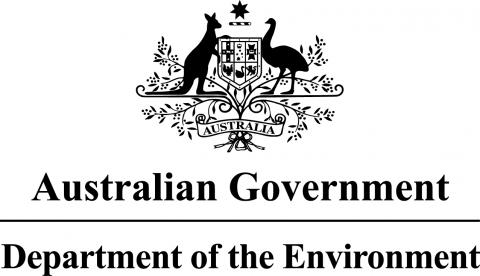Resources
The Conversation
25 February 2014
This summer we have seen one of the most dramatic animal die-offs ever recorded in Australia: at least 45,500 flying foxes dead on just one extremely hot day in southeast Queensland, according to our new research.
While flying foxes are often portrayed as noisy pets, they are protected native species, and declines in their populations have significant environmental ramifications as they spread seeds and pollinate native trees. Read more
The Conversation
19 September 2013
The growing demand for shark fin as an ingredient in Chinese cuisine has caused an explosion in the number of shark fisheries in recent decades. But sharks are important members of ocean food chains, and removing them can have unintended consequences. Our new study, conducted off the coast of northwest Australia, shows that killing sharks isn’t just bad for sharks; it can also harm coral reefs.
What do sharks have to do with coral? Read more
ABC News
06 January 2014
Queensland National Parks rangers say king tides later this month could have a devastating effect on nesting turtles at Mon Repos in Bundaberg.
Ranger Shane O'Connor says last year's floods caused severe erosion of the southern Queensland beach. Read more

Scientists recently published research in the international journal, Marine Pollution Bulletin that reinforces the need for improved land management practices in order to prevent unnecessary sediment runoff that is affecting the health of the Great Barrier Reef.
The study used a variety of new and improved techniques to analyse ten years of satellite data of the water clarity in the reef waters off the Burdekin coast. By removing the variability in water clarity caused by waves and other physical forces, the researchers were able to detect what particular influence river run-off has on reef.
"The study shows that large river flood events have a large impact on water quality, reaching very far off the coast and lasting several months," said AIMS Research Program Leader, Dr Schaffelke.
The photosynthetic algae that live on corals and which gives coral reefs their vibrant colours are reliant on the sun to survive. Sea grasses – important food for mammals and fish - are also dependent on the sun and a high level of sediment in the water can damage them or kill them by blocking the sun's rays. Sedimentation can also physically block other marine organism's ability to breathe. Marine plants and animals are highly sensitive to changes in water quality.
"This study shows that improved land management practices can result in a win-win outcome. The retention of nutrients, clays and fine silts in the catchments near the Burdekin River on the East coast of Australia would not only safe-guard the long-term productivity of farms, but also improve water clarity and ecosystem health in the central GBR, during the wet and dry seasons" added Dr Britta Schaffelke.
The research provides a vital link between the understanding of how land use influences river loads of nutrients and fine sediments and the current scientific knowledge of the importance of water clarity for marine organisms.
The study conducted by a team of scientists from the Australian Institute of Marine Science, James Cook University and the University of Queensland.
The published paper can be accessed at http://www.sciencedirect.com/science/article/pii/S0025326X14002902
For more information, contact Dr. Britta Schaffelke (b.schaffelke@aims.gov.au)
The Conversation
28 May 2013
In the rainforests of northern Queensland, scientists and government are getting serious about protecting wildlife, plants and ecosystems from climate change. A couple of years ago, Mount Baldy in the Herberton Range near Atherton became part of Queensland’s protected area estate, in part because the mountains will remain cool enough under global warming for many species to survive there.
The area will act as a refuge as species move from the warming lowlands. Now the Queensland government is using resilience to climate change as the primary factor in deciding what new national parks to add across the state. Read more
The Conversation
22 August 2013
The Coalition will instate a Commissioner for Threatened Species should it form government, according to shadow environment minister Greg Hunt. The minister says that, while management plans for threatened species exist, they are not being enacted thoroughly enough.
For many the announcement is the first sign of relief in a campaign, from both major parties, that has been almost devoid of positive environmental policies. Most Australians do not want more of our species to become extinct, even if it does mean some constraints on development. Read more
JCU
News Release
03 June 2013
James Cook University researchers are recording underwater sounds in the Great Barrier Reef to help track animal movements and human activities such as shipping.
JCU’s Centre for Sustainable Tropical Fisheries and Aquaculture (CSTFA) is collaborating with JASCO Applied Sciences, a world leader in the science of industrial underwater noise and its effect on marine life, on the project. Read more
The Newsport Daily
13 June 2013
Passengers on board Port's Poseidon catamaran yesterday had the thrill of a lifetime yesterday, with a Dwarf Minke Whale performing belly rolls within metres of snorkellers.
The five metre whale voluntarily approached the boat at the Agincourt Ribbon Reefs. Read more

ABC News
16 January 2014
Can mines coexist with a healthy reef? That's a notion Positive Change for Marine Life is exploring in a feature length documentary focussed on the Great Barrier Reef World Heritage Area.
It is one of Australia's most significant natural drawcards. Read more

Canberra Times
26 August 2013
Evidence is mounting of turbulent times ahead for marine fisheries undergoing climate change.
Australia's best-known ocean stream, the East Australian Current, will encourage growth of temperate marine life, according to new research. But at the same time in the Antarctic, the world's key krill fishery is said to be facing a loss of habitat. Read more




